Why You Should Think About Hiring A Plumber Near You
Why You Should Think About Hiring A Plumber Understanding Water Hammer Thawing Frozen Pipes Conducting a Leak Test Preventing Plumbing Emergencies Checking for Soot Buildup Conclusion FAQs Table of Contents Key Takeaways External References Table of Contents Understanding Water Hammer Thawing Frozen Pipes Conducting a Leak Test Preventing Plumbing Emergencies Checking for Soot Buildup Conclusion FAQs Understanding Water Hammer Have you ever been puzzled by a hammering sound in your pipes? This noise, known as water hammer, might be caused by faulty air chambers, indicating that water has entered your air chamber. Here are tips to address this issue: Identify the hammering sound as water hammer. Address faulty air chambers promptly. Consider consulting a professional plumber for a thorough inspection. Thawing Frozen Pipes Winter can bring the challenge of frozen pipes. If you encounter this issue, using a hairdryer to thaw the frozen pipes is a practical solution. Follow these steps: Turn off the water supply to your home. Use a hairdryer to gently warm the frozen pipe. Avoid causing damage to the pipe by thawing it gradually. Conducting a Leak Test After repairing or replacing pipes, performing a leak test is essential to prevent water damage. Follow these steps for a thorough leak test: Turn the water on and off to allow the pipes to move to their full level. Conduct the test on both hot and cold water. Ensure there are no signs of leaks during the test. Preventing Plumbing Emergencies Proactive measures can prevent plumbing emergencies. Whether you’re going on vacation or experiencing freezing temperatures, take these steps to avoid potential issues: Locate and turn off specific valves under each sink before going on vacation. Consider installing a water leak detection system for early alerts. Keep essential tools and materials handy for quick fixes. Checking for Soot Buildup If you have a gas water heater, regularly checking the pilot light for excessive soot buildup is crucial. Follow these steps: Inspect the pilot light for any signs of soot accumulation. Address excessive soot buildup promptly to prevent potential hazards. Consider scheduling regular check-ups with a professional plumber Conclusion Understanding the importance of hiring a plumber and addressing common plumbing issues can save you time and money. Whether it’s water hammer, frozen pipes, or leak prevention, taking the right steps ensures a well-maintained plumbing system. External References Explore these external references for more in-depth insights: Angie’s List – Find the Best Plumbers in Your Area HomeAdvisor – Hire Top-Rated Plumbing Professionals Thumbtack – Plumbers for Every Budget and Need Better Business Bureau (BBB) – Check Plumbers’ Ratings and Reviews Key Takeaways Here are key takeaways to keep in mind for effective plumbing maintenance: Hire a Professional: When facing complex plumbing issues or if you’re unsure, consulting a professional plumber ensures accurate diagnosis and lasting solutions. Address Water Hammer Promptly: Don’t ignore hammering sounds in your pipes. Identifying and fixing faulty air chambers can prevent potential damage. Thaw Frozen Pipes Carefully: During winter, use a hairdryer to thaw frozen pipes gradually. Rapid thawing can lead to pipe damage. Conduct Regular Leak Tests: After significant repairs and every six months, conduct leak tests to catch potential issues early and prevent water damage. Preventive Measures for Winter: Insulate exposed pipes, allow faucets to drip during freezing temperatures, and ensure proper heating in vulnerable areas of your home. Stay Informed: Explore external references for additional insights into plumbing maintenance and emergency preparedness. Water hammer can be addressed by identifying and fixing faulty air chambers. Thaw frozen pipes gradually with a hairdryer to prevent damage. Conduct leak tests after pipe repairs to prevent water damage. Take proactive measures to prevent plumbing emergencies, especially during vacations or freezing temperatures. Regularly check the pilot light on gas water heaters for soot buildup. Closing Thoughts Taking proactive steps to address plumbing issues and hiring a professional plumber when needed are essential for maintaining a healthy home environment. By staying informed and following the tips provided, you can save both time and money, ensuring the longevity of your plumbing system. FAQs For Hiring A Plumber Near Me Q: What is water hammer, and how can I address it? A: Water hammer is a hammering sound in pipes caused by faulty air chambers. Promptly address the issue by identifying and fixing the air chamber problem. Q: How do I thaw frozen pipes without causing damage? A: Turn off the water supply, use a hairdryer to gently warm the frozen pipe, and avoid rapid thawing to prevent damage. Q: What causes water hammer, and why is it important to address? A: Water hammer is caused by faulty air chambers, leading to a hammering sound in pipes. It’s important to address because it can indicate potential issues and, if left unresolved, may lead to pipe damage or other plumbing problems. Q: Can I fix water hammer on my own, or should I consult a professional plumber? A: While simple cases of water hammer may be addressed on your own, it’s advisable to consult a professional plumber for a thorough inspection. They can identify underlying issues and provide a lasting solution to prevent recurrence. Q: Are there preventive measures to avoid frozen pipes during winter? A: Yes, you can take several preventive measures to avoid frozen pipes, such as insulating exposed pipes, allowing faucets to drip during freezing temperatures, and ensuring adequate heating in vulnerable areas of your home. Q: How often should I conduct leak tests in my plumbing system? A: It’s recommended to conduct leak tests after any significant plumbing repairs or changes. Additionally, performing routine leak tests every six months can help catch potential issues early and prevent water damage.

